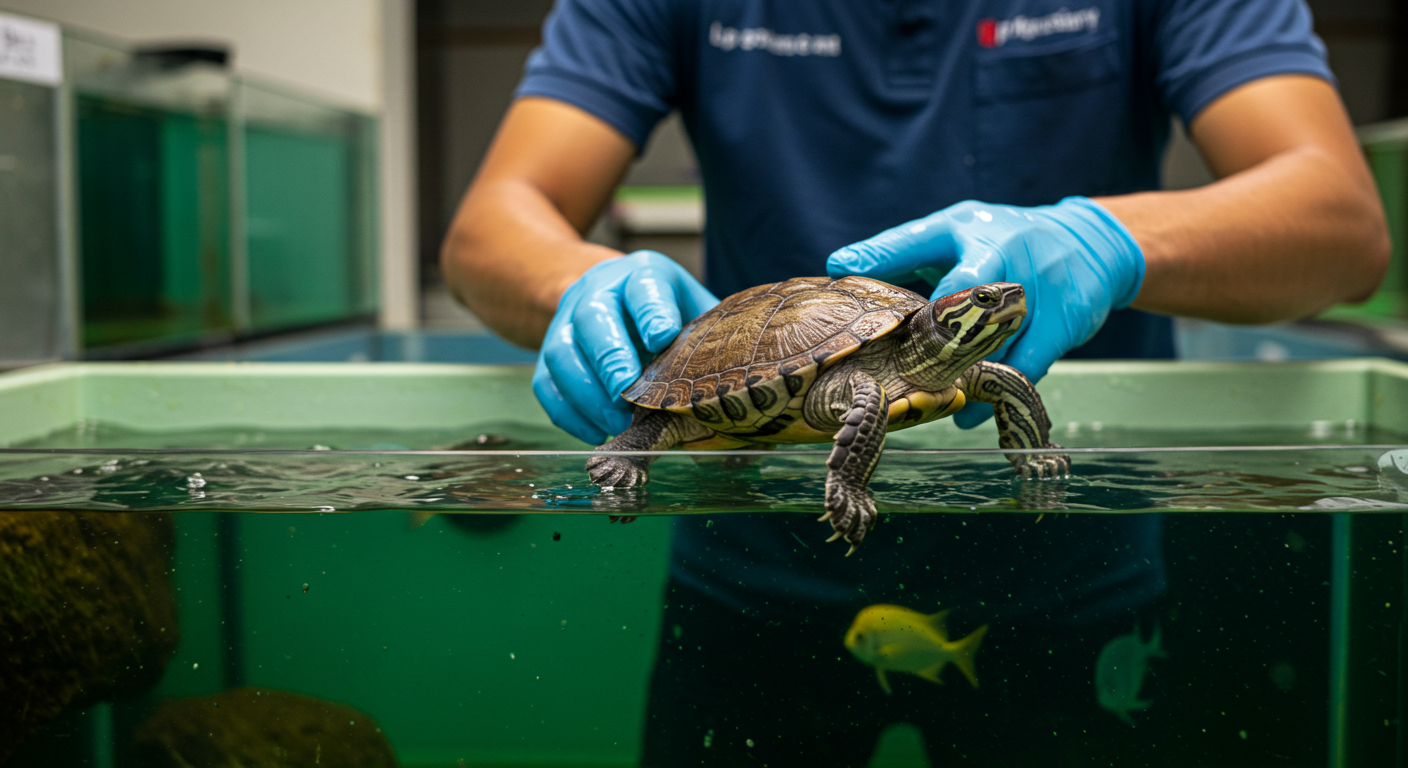Aquarists in Malaysia are individuals who specialize in the care and maintenance of aquatic animals and plants.
They are responsible for creating and maintaining a healthy environment for fish, turtles, and other aquatic creatures in aquariums, ponds, and other aquatic habitats.
Aquarists in Malaysia may work in public aquariums, zoos, or private aquariums, and they may also provide consulting services to individuals who own aquariums.
They are knowledgeable about the different species of aquatic animals and plants, their behavior, and their nutritional needs.
Aquarists in Malaysia also play an important role in conservation efforts by breeding endangered species and educating the public about the importance of preserving aquatic habitats.
How much does a Aquarist make in Malaysia per month?
The salary of an aquarist in Malaysia can vary depending on factors such as experience, location, and the size of the facility they work for.
On average, an aquarist in Malaysia can expect to earn around RM 2,000 to RM 3,500 per month.
This is equivalent to approximately $480 to $840 USD per month. However, this is just an estimate and actual salaries may differ.
Is Aquarist in high demand in Malaysia?
It is difficult to determine the exact demand for aquarists in Malaysia without specific data.
However, the aquaculture and aquarium industries are growing in the country, which could potentially lead to an increased demand for aquarists.
Malaysia has a rich biodiversity of marine life, which may contribute to the interest in aquariums and aquatic life.
However, the demand for aquarists may still be relatively niche compared to other professions in the country.
Is Aquarist a good career in Malaysia?
Aquarist is a relatively niche career in Malaysia, and the demand for professionals in this field may not be as high as in other industries. However, there are still opportunities available for those who are passionate about marine life and have the necessary skills and qualifications.
Aquarists can work in various settings, including public aquariums, research institutions, and private companies that specialize in aquarium design and maintenance.
Some of the job responsibilities may include feeding and caring for aquatic animals, monitoring water quality, and designing and maintaining aquarium exhibits.
To pursue a career as an aquarist in Malaysia, you may need to have a degree in marine biology, aquaculture, or a related field.
You may also need to have practical experience working with aquatic animals and be familiar with the latest technologies and techniques used in aquarium maintenance.
Whether or not aquarist is a good career in Malaysia depends on your personal interests, skills, and career goals.
If you are passionate about marine life and have the necessary qualifications, there may be opportunities available for you in this field.
What kind of companies hire Aquarist in Malaysia?
If you’re wondering what kind of top companies hire Aquarist, here are some examples to consider:
1. Public aquariums
2. Private aquariums
3. Zoos
4. Marine research institutions
5. Fish hatcheries
6. Pet stores
7. Aquatic plant nurseries
8. Aquarium maintenance companies
9. Aquarium design and installation firms
10. Environmental consulting firms specializing in aquatic ecosystems.
What other jobs can Aquarist do?
There are often many transferable skills as Aquarist that can be utilised in other industries.
If you’re wondering what other jobs you can do with experience as a Aquarist, consider exploring the following alternatives:
1. Marine Biologist
2. Fish Hatchery Technician
3. Aquarium Curator
4. Marine Mammal Trainer
5. Oceanographer
6. Fisheries Biologist
7. Coral Reef Restoration Specialist
8. Underwater Photographer
9. Aquarium Educator
10. Fish and Wildlife Technician
What are the skills required for Aquarist?
To be a successful Aquarist, you need to possess a variety of skills.
Here are some of the most important skills for a Aquarist:
1. Knowledge of aquatic biology and ecology
2. Understanding of water chemistry and filtration systems
3. Ability to maintain and monitor water quality
4. Knowledge of different species of fish and their care requirements
5. Experience with aquarium equipment and maintenance
6. Attention to detail and ability to spot potential problems early
7. Patience and dedication to the care of aquatic animals
8. Strong communication skills for interacting with customers and colleagues
9. Ability to work independently and as part of a team
10. Flexibility and adaptability to changing situations and environments.
By developing these skills, you can position yourself for success as Aquarist and make valuable contributions to your organization.
How can I become a Aquarist in Malaysia?
Becoming a Aquarist requires a combination of education, experience, and skills.
To become an Aquarist in Malaysia, you can follow these steps:
1. Obtain a degree in Aquaculture, Marine Biology, or a related field from a recognized university or college.
2. Gain practical experience by working as an intern or volunteer at an aquarium or fish farm.
3. Join a professional association such as the Malaysian Aquaculture Society or the Malaysian Fisheries Society to network with other professionals in the field.
4. Attend workshops, seminars, and conferences to stay up-to-date with the latest developments in the field.
5. Obtain any necessary licenses or certifications required by the Malaysian government to work in the aquaculture industry.
6. Apply for Aquarist positions at aquariums, fish farms, or research institutions.
7. Continuously improve your skills and knowledge by pursuing further education and training opportunities.
By following these steps and continually honing your skills, you can become a successful Aquarist and make a meaningful impact in the field.
Disclaimer:
This guide is provided as-is and may not represent the most up-to-date information or requirements to become Aquarist.
It’s always recommended to seek advice from experts in the field and refer to reputable sources for the latest information.
We do not take any responsibility for any damages or decisions made based on the information provided in this guide.

